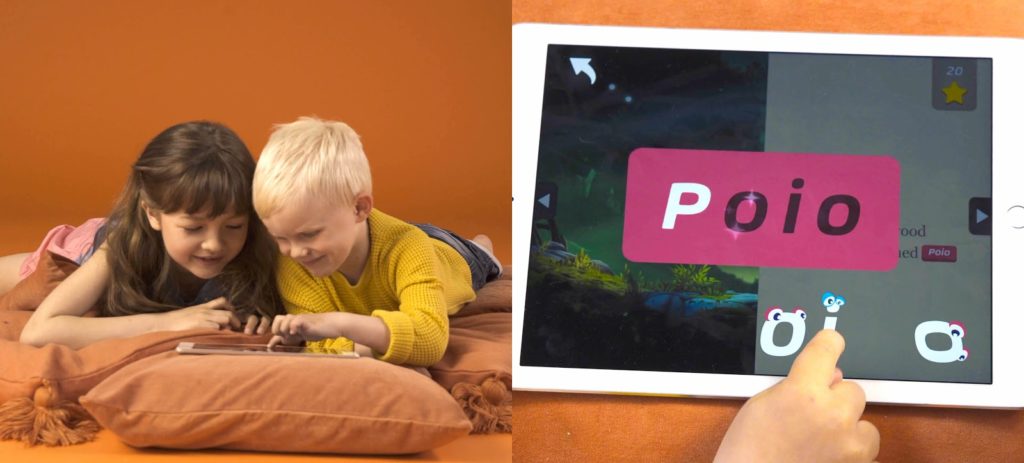Berkeley Everett is a consultant at DragonBox, the math apps from Kahoot!, and helps make sure the games have the educational value that makes your child thrive. He is also a K-5 Math Coach & Facilitator at UCLA Mathematics Project. In other words; he knows how to engage children, what’s needed to help them gain a love for learning, and how to handle big changes like your child starting at school.
Regardless of how this school year will look like, we hope these tips will give you some guidance in making it awesome for your child!

Q: Can you share any best practices for helping my child with homework?
A: Curiosity and imagination aren’t words typically associated with homework, but you can help your child see that anything can be interesting if they stay curious and use their imagination. If they’ve completed a page of math equations, you could ask: “What do you notice about these problems? If you were the teacher, which equations would you put on tomorrow’s homework and why? What is an interesting story that could match one of these equations?”
Q: Do you have tips on fun ideas for practicing reading and math at home that doesn’t feel like homework?
A: Choice is one of the most important and under-utilized aspects of learning. When you are offered a choice you feel more engaged and take more ownership. In reading that might be choosing a “fun” book (which might even be a comic book). In math that could be making up your own problems to solve (especially word problems that are meaningful to the child or collecting data from a survey they created). Math is all about noticing patterns and being strategic, which is also what card games and board games are all about. I also love video games that combine true learning and genuine fun – like DragonBox and Poio!

Q: Due to the current corona-situation, we’ll be homeschooling this year and have set up a “pandemic pod” or learning pod with a couple of other parents. We’ve done a lot of planning and are about to start now, but as this is our first time doing something like this we’d love any tips you might have for us.
A: What a wonderful opportunity you have to collaborate with other parents. I recommend using each of your passions to engage your children in unique learning experiences they might not normally get. Maybe one of the parents is an expert baker? Measuring, doubling the recipe, thinking about how the ratio of water to flour will affect the texture are more than enough “math exercises” for one day. Maybe one of the parents is passionate about reading mysteries, and can lead a “book club?” By sharing your passion with the children, you can inspire them to find their passion and share it with their peers. The goal of school is “learning how to learn,” so let curiosity and collaboration lead the way and don’t worry too much about the content or topic.
Q: My child has been a bit nervous about starting at school. How can I motivate him? And what’s the best way to talk to him about his days at school? I’d like to be as supportive as possible and follow up on him closely but without being «smothering».
A: I rarely know the perfect thing to say. Instead of offering advice or motivational words to people, I’ve learned that listening, asking follow-up questions, and validating someone’s experience helps them process their thoughts and feelings. A mix of general (“what are you most excited about?”) and specific questions (“if you could take a toy to school which one would it be and why?”) can help you start the conversation.
Q: My son is struggling a bit with learning how to read. He just started his second year now, and I’m worried about him falling behind. I’ve tried to read with him, find texts that might interest him, offer rewards if he does his reading practice, but nothing seems to work. He’s just quite reluctant to practice. How can I help him?
A: You are showing your son you care about him and about reading, and that will pay off even if it feels like a struggle now. People learn to read at different ages, so don’t worry too much about “official” reading levels. There are books about every topic, so once he finds his passion the books will follow. Look for other in-roads to reading. Maybe he is interested in communicating his ideas through writing and can take inspiration from books? Or he might enjoy listening to a book read out loud (either by you or through audiobook) before he reads it himself? We also love the power of video games to make learning interactive and fun, so you might want to try Poio if you haven’t already! Check it out here.

Q: We’ve been practicing social skills to make the transition between kindergarten and school a little bit smoother for my child. Like waiting in line, putting a hand up, and similar. But I’d love to know if there are more skills that could be good to practice at home at the beginning of the school year. And how? Any good methods?
A: One of the most important skills is asking questions when you’re confused. Teachers often appreciate when students ask a genuine and specific question in class It shows they were listening, are curious, and are confident to share what they don’t understand yet. Let your child know they can help their teacher by asking questions when they are confused or curious and practice at home. This might remind you of a younger phase when they asked “why?” about everything. That curiosity will serve them well in school and in life.
Q: Would you say it’s OK to let my child do his daily reading on an e-reader or tablet? He seems to stay more engaged that way.
A: Absolutely. Engagement is important, and e-readers/tablets often offer dictionaries and highlighting tools that might come in handy. You could even make it a game by asking your child to “teach” you a new word from their reading once in a while.
Q: How much time do you recommend as the maximum screen-time after school?
A: I’m no expert, so I will direct you to this article. One note that stuck out to me: the type of activity is more important than the time someone spends on the screen. Is their brain being stimulated? Are they exploring a passion and learning more about their world? One way to communicate with your child about being off-screen is discussing the importance of boredom. If a child says “I’m bored,” you might say “Good! I wonder what your imagination will come up with?”
Q: There are quite a lot of activities that we can sign our child up for at the school, mostly online these days or in small groups, and my child wants to go to ALL of them. Obviously that would be too much, but I do want her to join some of them as I think it would be good for making friends etc. How do I figure out which one(s) to choose for her? How many activities a week would you recommend?
A: Your question touches upon a big theme of being human: how do I know which path to take? I find there are advantages and drawbacks to any choice, and since I can’t predict how I’ll feel in the future it is okay to make a random or gut decision and adjust later if necessary. The number of activities I’d recommend per week depends on what you’ve done before. If you did no after-school activities last year, I’d try just one or two and see how that feels. If last year you signed up for two and you still want more, try three!
If you’d like more great tips on how to engage your child when learning skills like reading and math, follow DragonBox on Facebook, or Berkeley Everett on Twitter.




